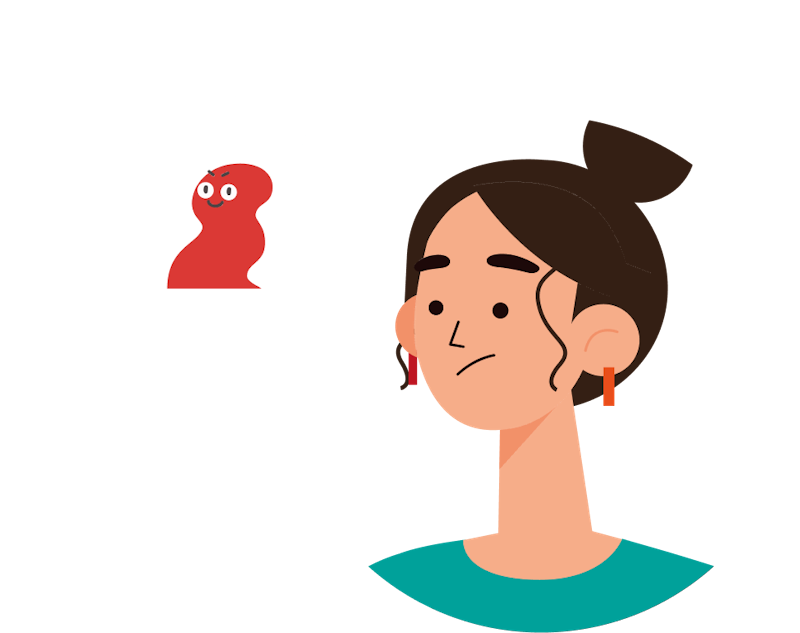It's Pain Awareness Month
We shine a light on the invisible illness of chronic pain. Discover what it's like to experience persistent pain, the impact it has, the truth about opiates and "painkillers" and how the future is brighter for people living with pain.
Shining a light on invisible illness
1 in 3 of us lives with chronic pain* – an invisible challenge that reshapes lives daily. The chances are you know someone experiencing it.
It's the uninvited guest stealing sleep, cancelling plans, and disrupting routines.
Yet while the number of people living with it grows, chronic pain remains in the shadows. It's time to bring it into the spotlight, to listen, understand, and stand together.
Let's give a voice to the quiet struggle that deserves to be heard, because acknowledging pain is the first step toward managing it.
What’s it like to experience chronic pain?
We've all experienced the sharpness of a cut or the intensity of a burn, but have you ever tried to imagine what chronic pain feels like, day in and day out?
We shine a light on what it’s like to live with three chronic pain conditions. Here's how people* living with them describe their pain.
Warning: may be triggering for people living with pain

Fibromyalgia
“Feels like my bones are expanding to push their way out of my body”
“It’s like pressing on a big bruise…invisible bruises everywhere”
“Like I have a flu with all the aches and the feverish symptoms”
"Feels like a boxer has punched my back, neck and arms all over”
Endometriosis
“Feels like I’m being knifed in my ovaries and the knife is being twisted”
“Feels like my insides are twisting up”
“Like rays of pain that slowly inch further down until they hit my knees”
“Like you can never stand up fully”
“I had appendicitis and didn’t even notice.”
“It is challenging to explain symptoms to someone who has never experienced it, like describing the colour red to someone who can’t see.”
CRPS
“Like barbed wire wrapped around my legs”
“Like being in a beehive and being stung thousands of times all at once”
“Feels like scratching a sunburn repeatedly”
“Nerve pain that feels like a 2-3 year old messing with the volume on a radio except the volume controls pain levels”
“Like lightning strikes. the pain comes whereever it wants to. There's no reasoning or logic to it.”
The ripple effect of pain
Living with daily pain is like having an unexpected guest that rearranges your life.
Social invitations sometimes get declined to save energy for the essentials. Relationships can face hurdles when plans are cancelled, testing patience on all sides.
Because pain doesn't follow a schedule, holding down work or study can feel like trying to catch smoke with your hands. This leads to a domino effect, straining finances and leaving routines in disarray.
It's no surprise that those grappling with constant pain are more likely to feel the weight of anxiety and depression associated with it. The unrelenting struggle can cast a shadow over even the sunniest days.
Finding clarity with a diagnosis
Discovering a diagnosis for chronic pain is like finally giving an uninvited guest a name – a way to understand the intruder that's been disrupting life.
But gaining this understanding can be a tiring and frustrating journey. Many have struggled to feel heard and validated by healthcare services, often feeling like their pain is dismissed as being 'all in their head'.
The truth about opioids and “painkillers”
While they can be effective for some pains - like acute pains related to an injury or surgery, or for cancer pain relief - there is little evidence that opioids are helpful for chronic primary pain.
As all pain starts as acute, many people are prescribed opiates as a “pain killer” but are left on them or they are increased over time.
These medicines can seem like a lifeline, a desperate attempt to tame the unrelenting discomfort. However, they often don’t help and can cause potentially harmful side effects. Sometimes the strength of the drugs can blur the lines between symptoms of pain and side effects of medication.
Our understanding has come a long way
But there is a lot left to learn
Imagine having chronic pain in your life, like an unwelcome guest. The old-fashioned way of dealing with it is like trying to get rid of a stubborn visitor at your door by using just one tool: medication. It's a bit like trying to clean up a big mess with only a broom.
But there's a better way, called the 'biopsychosocial' approach. This idea was proposed almost 50 years ago and it's like getting to know this guest a bit better.
The biopsychosocial approach is like figuring out why they came, how they're making things difficult for you, and finding the best ways to make them feel more at ease or even go away. It's not just about one thing; it's about looking at the whole situation to really handle that unwelcome presence.
But because not all doctors and health professionals are familiar with the biopsychosocial approach, some still use the biomedical that's less effective for supporting people with chronic pain.

"Bio"
____
Refers to the biological part, focusing on your body's physical functions and any medical reasons behind your pain.
"psycho"
____
Involves your mind and emotions, acknowledging how pain can impact your thoughts, mood, and mental well-being.

"social"
____
Relates to your surroundings – your relationships, work or study, daily activities, and the environment you're in.
The future is brighter
Imagine chronic pain as an unexpected guest who decided to stick around. At the beginning, it felt like adjusting your life around an unplanned visitor. But as science learns more about pain, understanding grows – it's like shining a light on the dark spots.
The biopsychosocial approach becomes a set of tools to help you comprehend and deal with this guest. It's like getting to know them better and finding ways to peacefully coexist. Along with new treatments like medical cannabis and options like pain-specialist physiotherapy and psychology, it's like discovering new ways to make this guest less intrusive.
With time, this uninvited guest might not feel as bothersome anymore. Instead, they turn into a steady companion, interfering less with your routine, as you learn to live better alongside them each day.
Is pain your unwanted guest?
We offer 1:1 support, clinician-led group programmes and self-paced tools.
Build confidence and reduce pain's hold. To help you achieve what felt impossible before.
Unlock and apply the latest pain science. Under the guidance of renowned specialists.
Break free from unhelpful and harmful medications. Explore emerging treatments not available on the NHS like medical cannabis in a safe environment.

Book a pain assessment for £99
🌟 30-minute online pain assessment with a leading pain consultant.
🌟 You'll explore your pain, past experiences, treatment and future goals.
🌟 Agree a treatment plan grounded in the latest pain science.
🌟 Treatment plan will reduce unhelpful and harmful medication and may include a prescription for medical cannabis.
🌟 If prescribed, we'll explain any additional costs for you to decide.
* the words of people living with pain sharing their experiences on Reddit